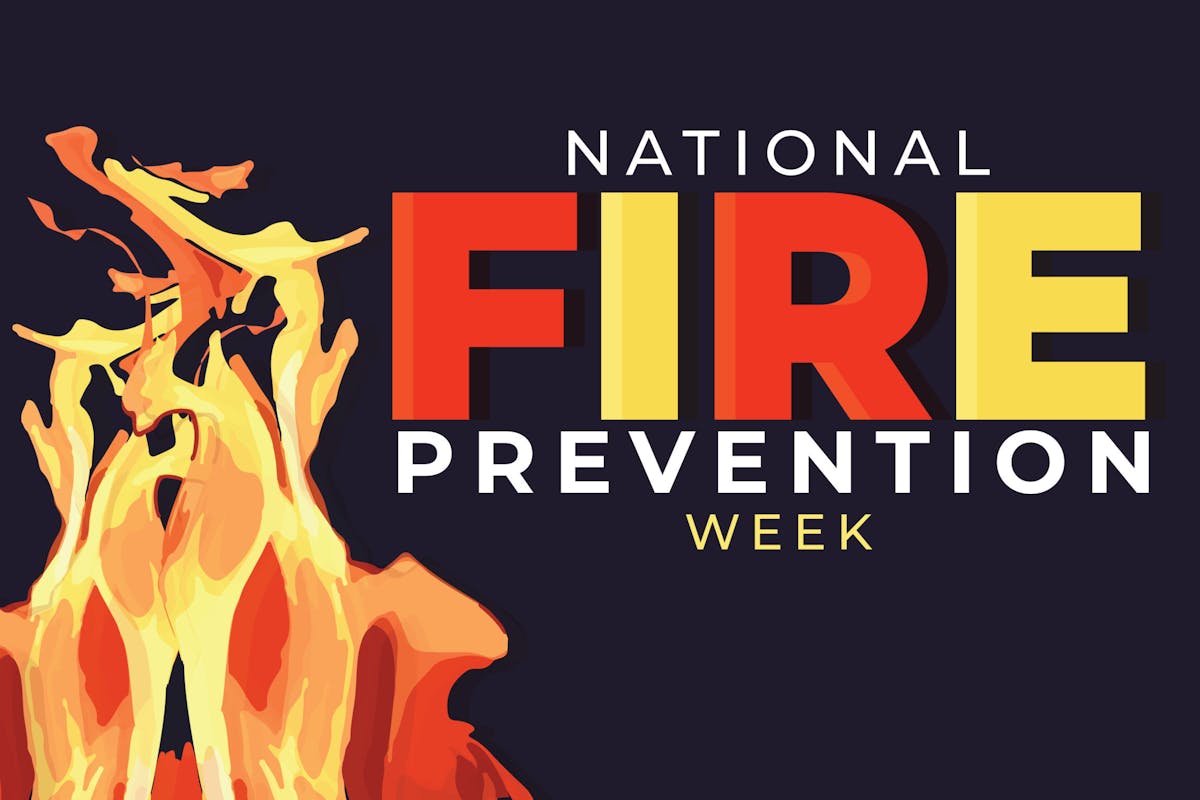Fire Prevention Week: Safety Tips to Protect Your Home and Family

Each year, Fire Prevention Week serves as an important reminder to take proactive steps to reduce the risk of home fires—and if a fire does break out, to have a system in place to protect members of your household.
Established in 1925 and observed every year in early October, Fire Prevention Week commemorates the Great Chicago Fire of 1871. It is designed to educate families and communities on potential hazards and modern fire safety practices. The 2025 theme is a good one: Charge into Fire Safety™: Lithium-Ion Batteries in Your Home.
Why Fire Prevention Matters More Than Ever
According to the National Fire Protection Association (NFPA), a home fire occurs every 95 seconds in the US. Most deadly fires happen at night, while people are sleeping. Seniors, children, and those with disabilities are particularly vulnerable in the event a fire breaks out.
The good news? Most home fires are preventable with a combination of awareness, planning, and smart habits. Here are eight essential fire prevention steps you can take to help you and your family stay safe:
- Install and Maintain Smoke Alarms
Smoke alarms are your first line of defense. The NFPA recommends that you:
- Install smoke alarms inside every bedroom, outside each sleeping area, and on every level of the home (including basements).
- Test alarms monthly.
- Replace batteries at least once a year (or sooner if low-battery warnings chirp).
- Replace smoke alarms every 10 years.
- Consider upgrading to interconnected smoke alarms—when one sounds, they all do. Smart smoke detectors can also send alerts to your phone.
- Create and Practice an Escape Plan
Everyone in your home should know how to get out safely if a fire breaks out:
- Draw a map of your home showing all doors and windows.
- Identify two ways out of every room.
- Choose an outside meeting place (like a tree or mailbox).
- Do a practice run of the plan twice a year, including during the night.
- Be sure to practice using mobility aids or assisting family members who may need help evacuating.
- Be Smart in the Kitchen
Cooking remains the leading cause of home fires. To reduce risk:
- Never leave cooking food unattended.
- Turn pot handles inward to prevent spills.
- Keep flammable items like towels and curtains away from the stovetop.
- Avoid cooking if you’re drowsy or under the influence of alcohol or medication.
- Have a lid nearby to smother small grease fires—never use water.
- Use Heating Equipment Safely
As colder months approach, space heaters and fireplaces are common hazards. To operate them safely:
- Keep anything that can burn at least three feet away from heat sources.
- Turn off space heaters when you leave a room or go to bed.
- Get chimneys and wood stoves cleaned and inspected annually.
- Use a sturdy screen to stop sparks from escaping fireplaces.
- Don’t use a space heater with an extension cord.
5. Electrical and Appliance Safety
Fires caused by electrical malfunctions can be especially dangerous. To lower the likelihood of an electrical problem:
- Don’t overload outlets or power strips.
- Replace damaged cords or loose outlets.
- Avoid running cords under rugs or furniture.
- Hire a licensed electrician for any wiring issues.
- Unplug appliances when not in use, especially heat-producing ones like toasters or hair tools.
6. Store Flammable Materials Properly
Keep flammable liquids such as gasoline, paint thinners, and propane outside your home in approved containers. Store them away from heat sources, including water heaters and pilot lights.
7. Install Fire Extinguishers and Know How to Use Them
Place fire extinguishers in key locations: kitchen, garage, and near exits. Learn how to operate them using the PASS method:
- Pull the pin.
- Aim low.
- Squeeze the handle.
- Sweep side to side.
Make sure your family knows when to use a fire extinguisher and when to evacuate instead.
8. Protect Those Most at Risk
For older adults, children, and people with disabilities:
- Use visual alarms or bed shaker alarms for the hearing impaired.
- Teach children fire safety without causing fear. Practice drills can be made fun.
- Make it a habit to keep necessary medications, eyeglasses, and emergency contacts near your bed in case of a nighttime fire.
Invest in a Mobile Monitoring Unit
One final suggestion is to consider investing in a mobile monitoring unit, especially if you are an older adult or live alone. You can store this small device on your nightstand. In the event of a fire or other emergency, you can evacuate and quickly summon help with the press of a button. Call 1-844-203-5617 to learn more!